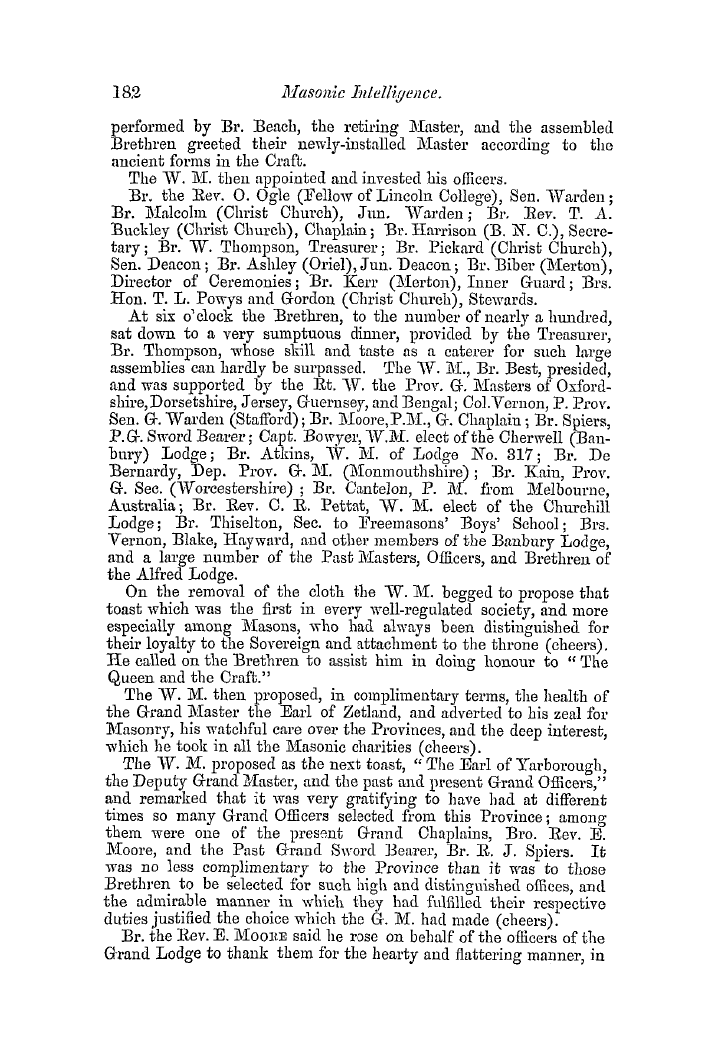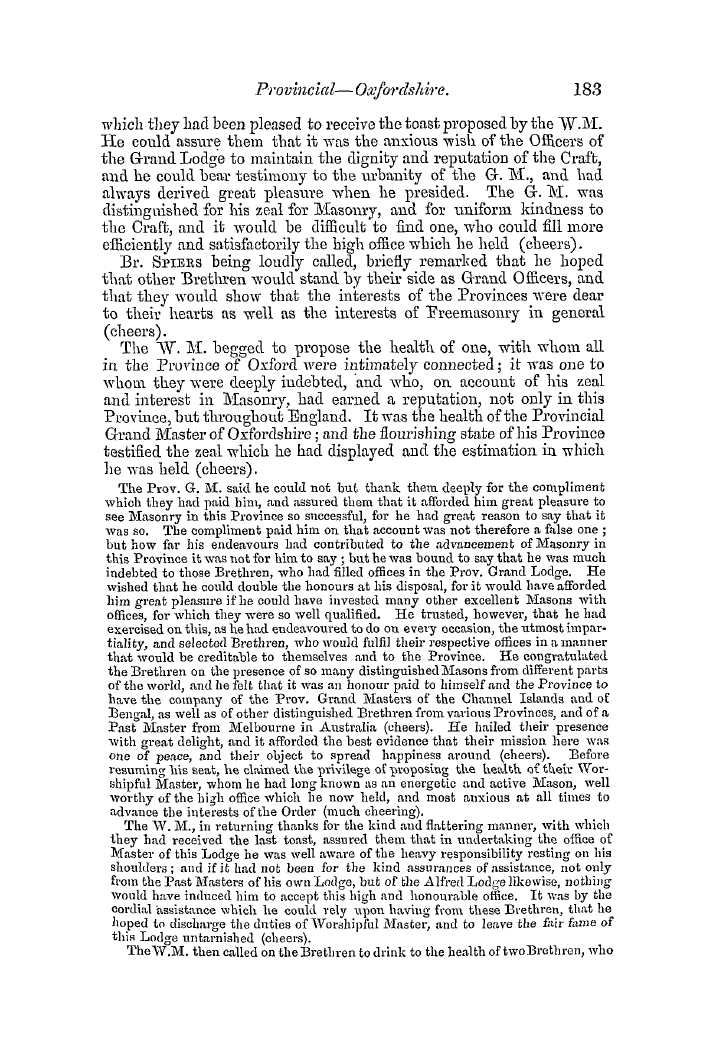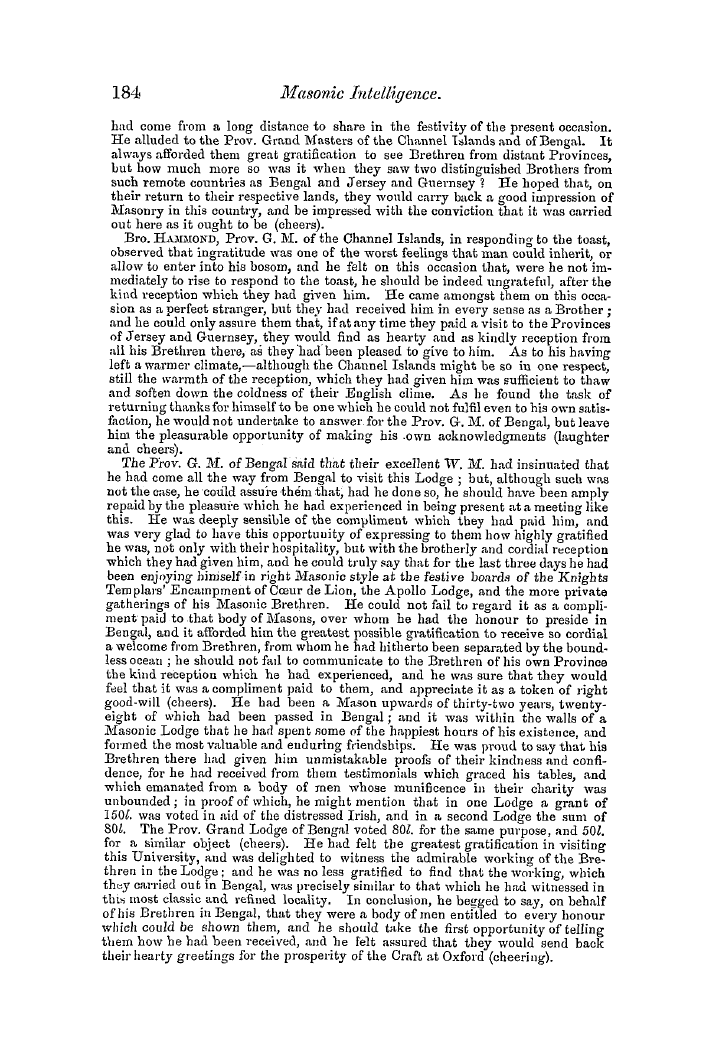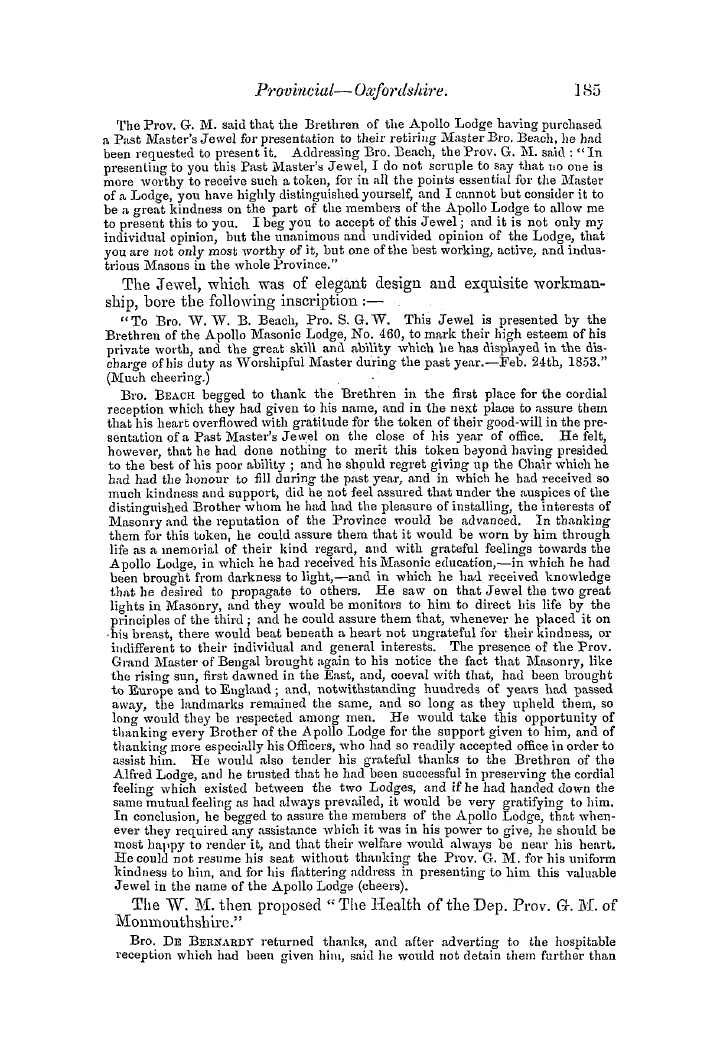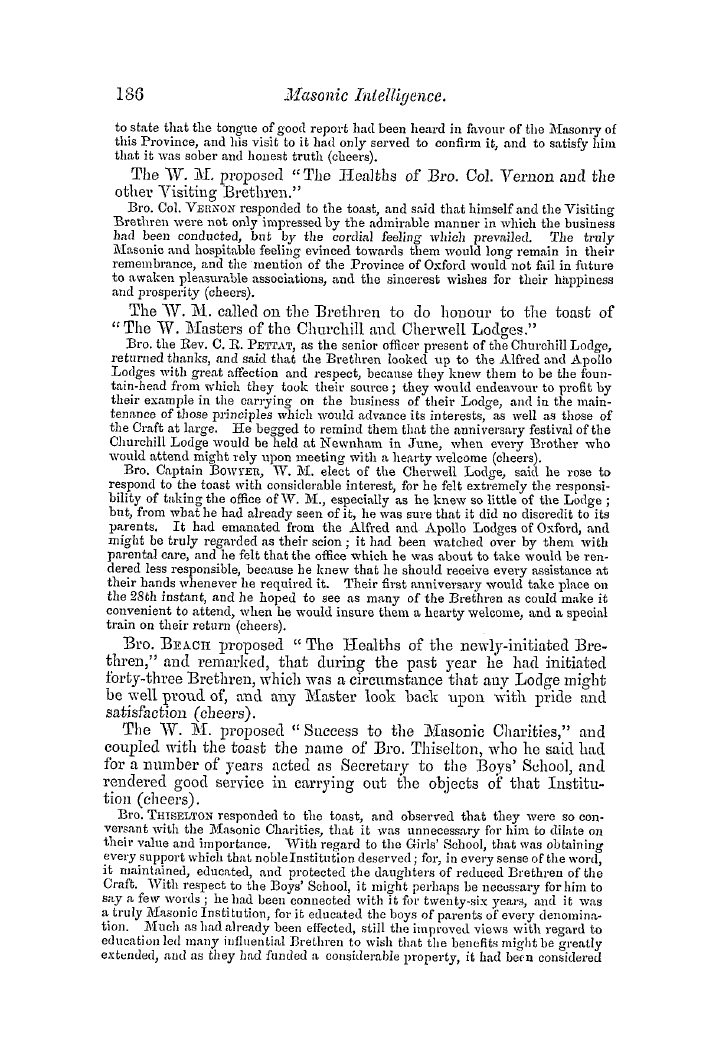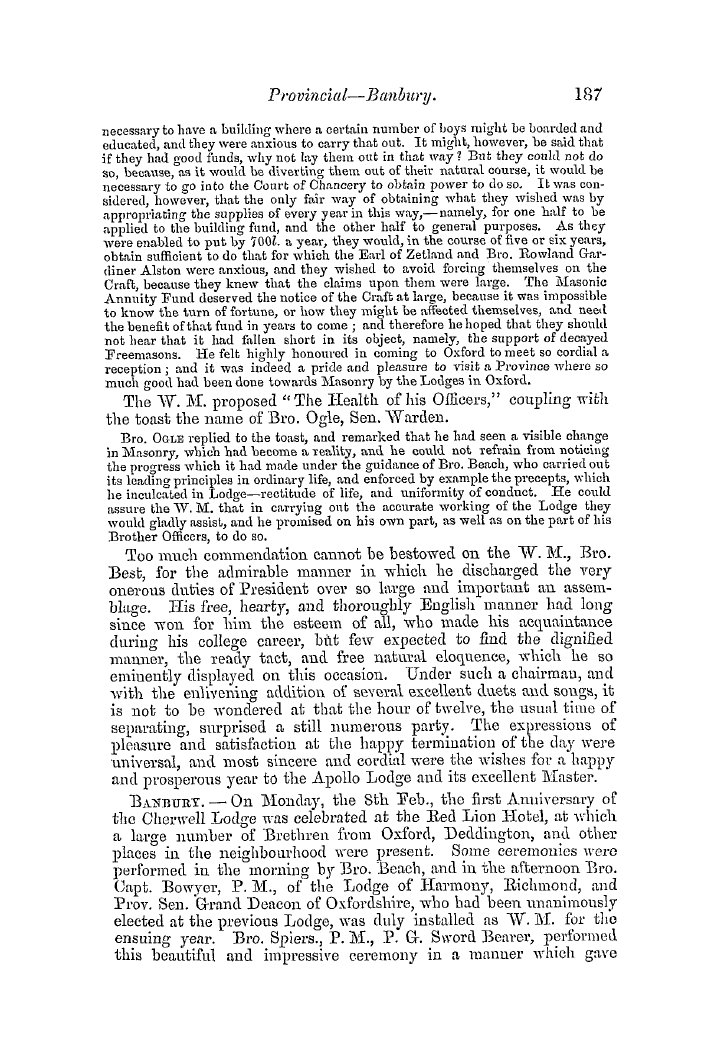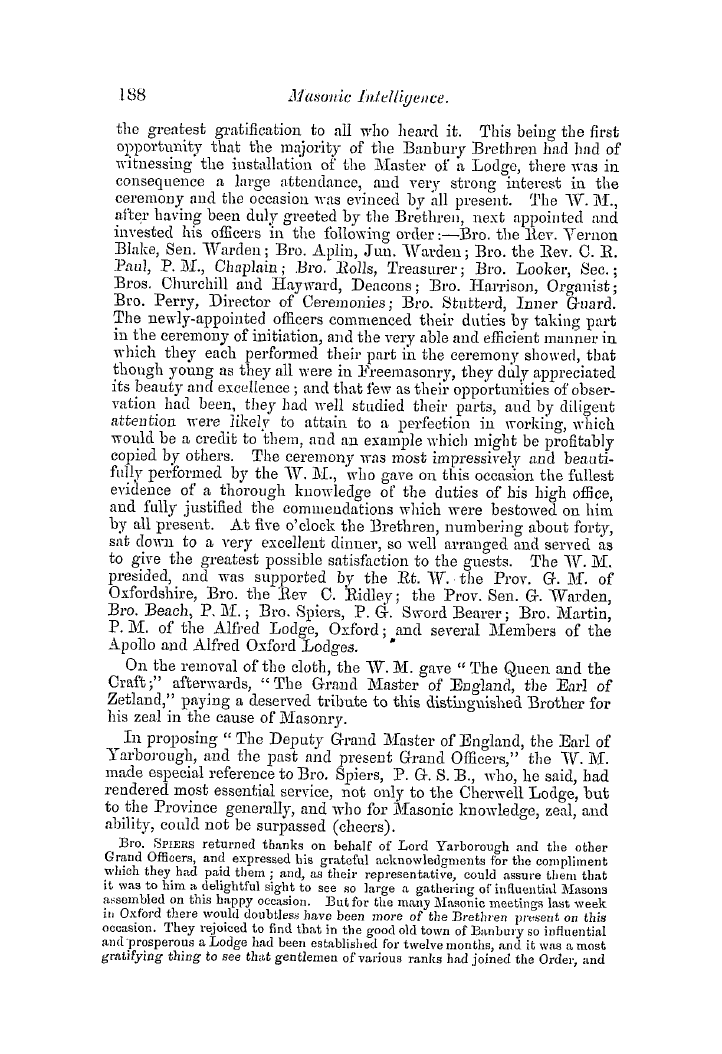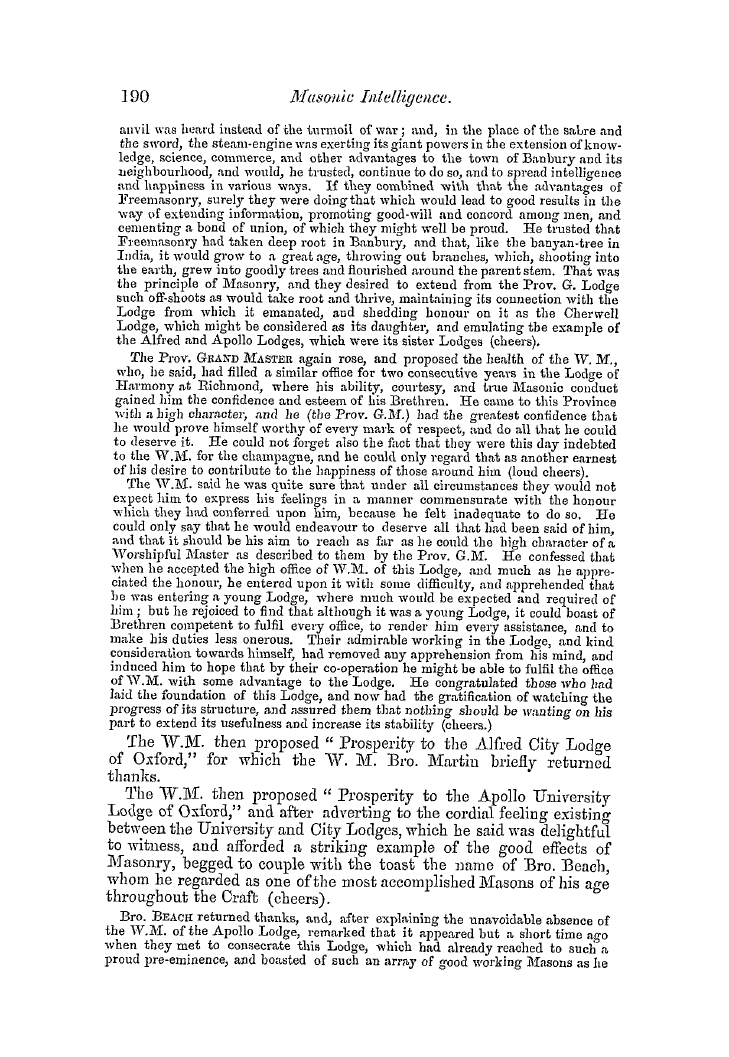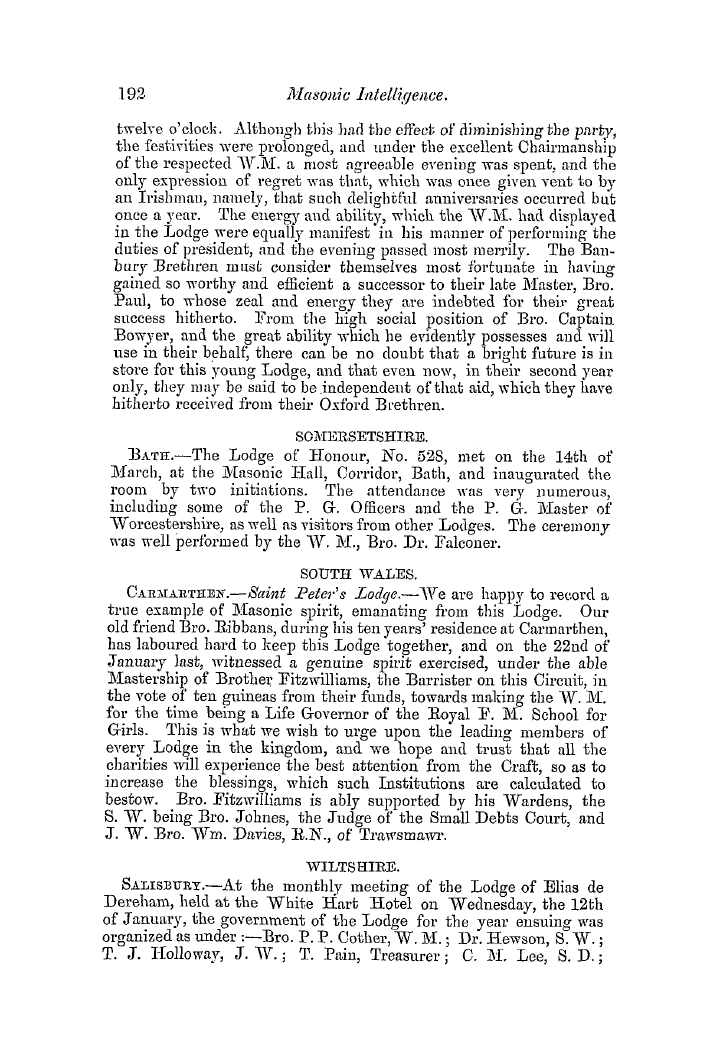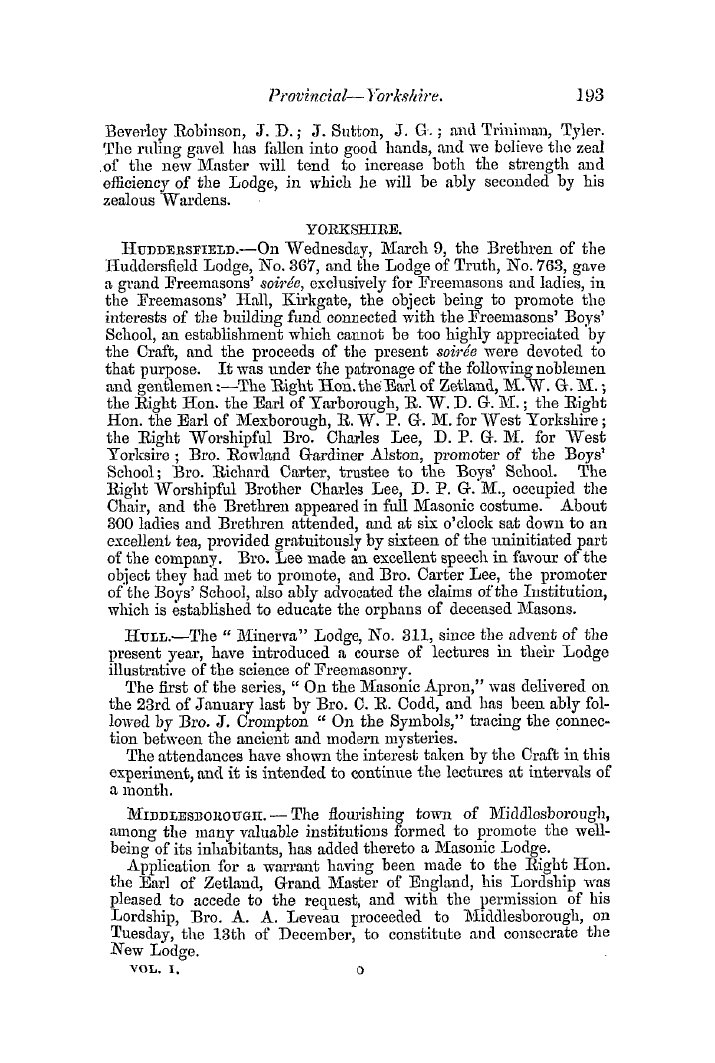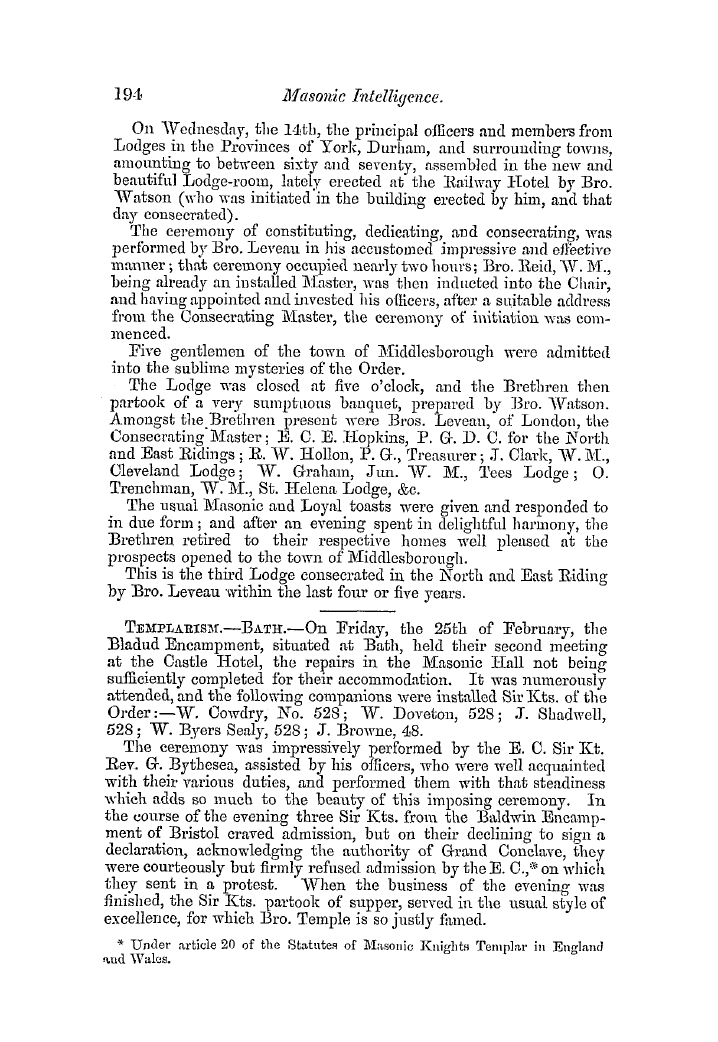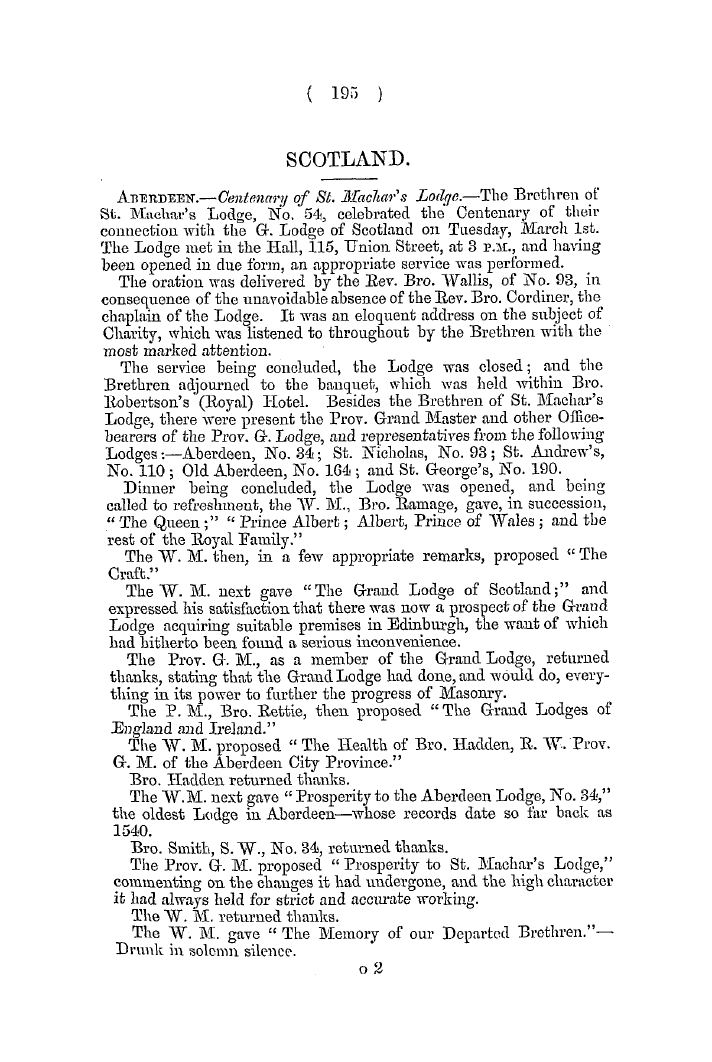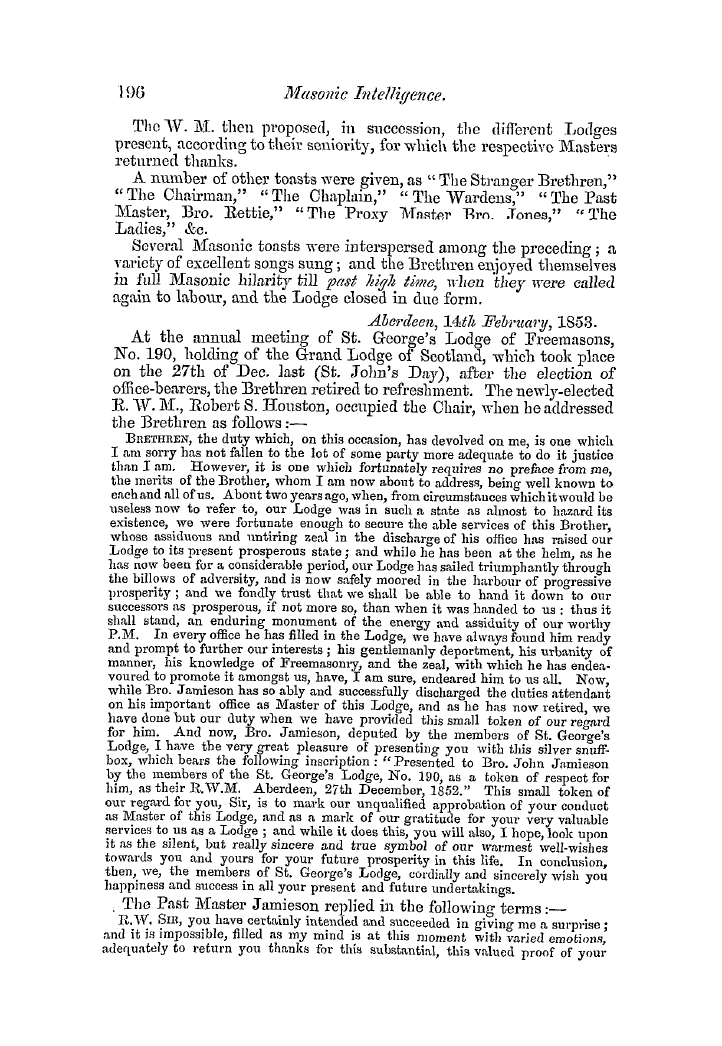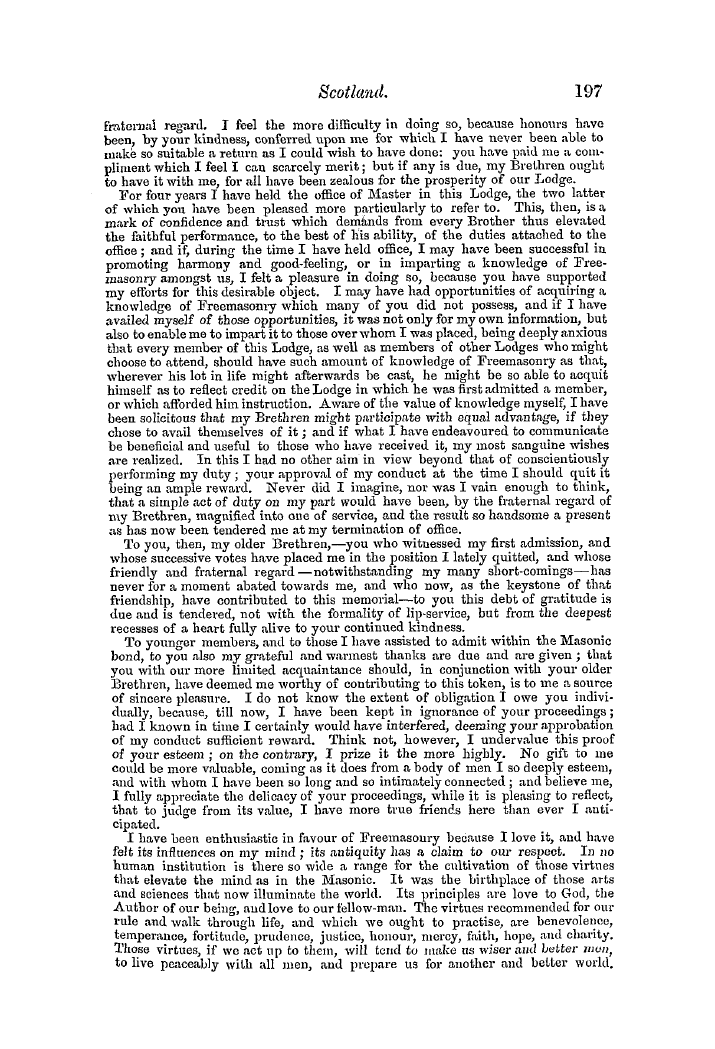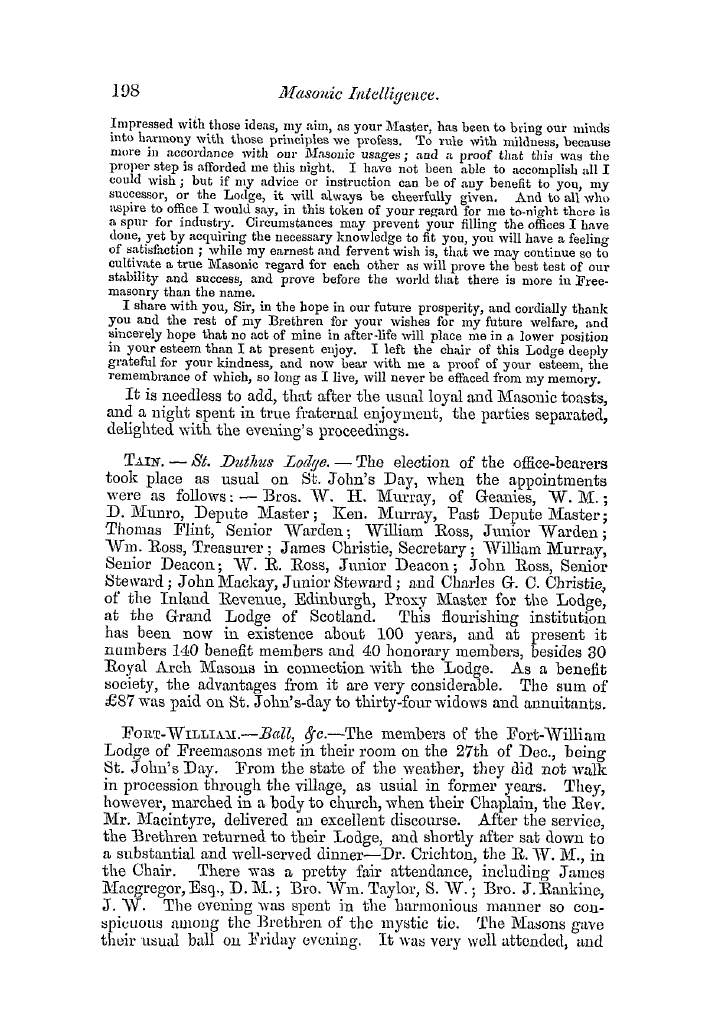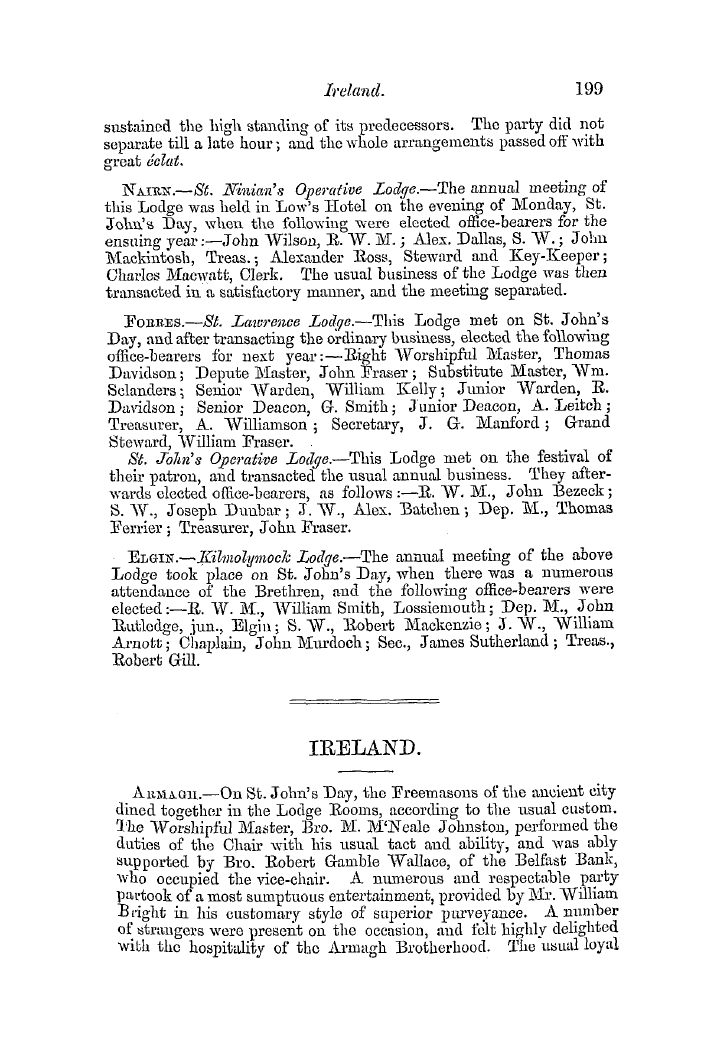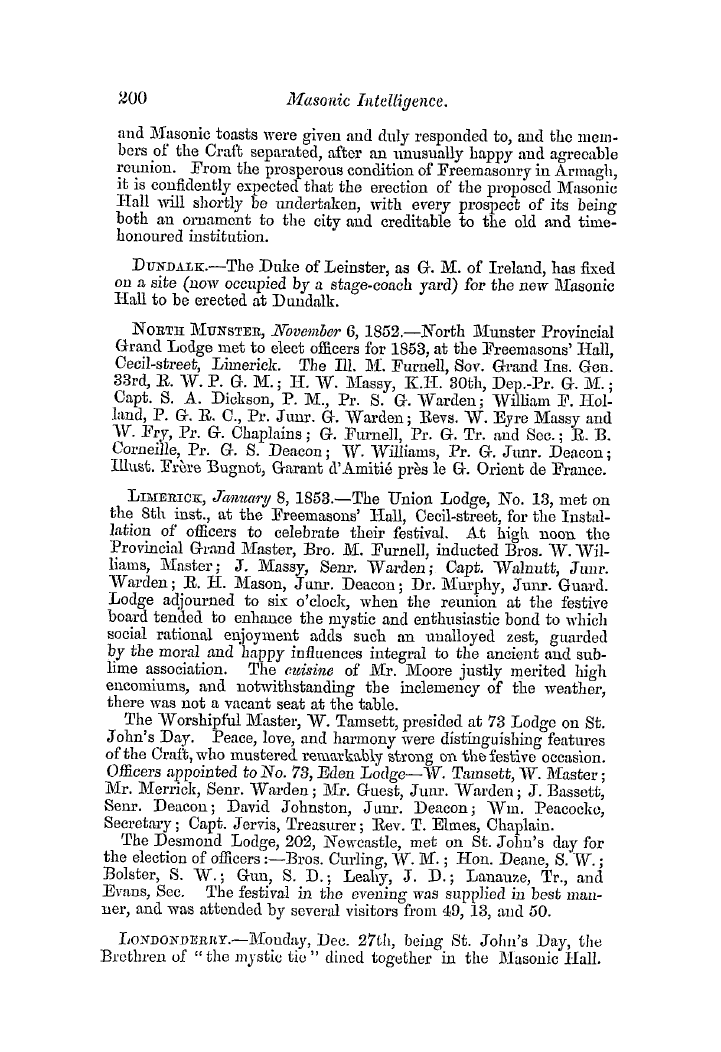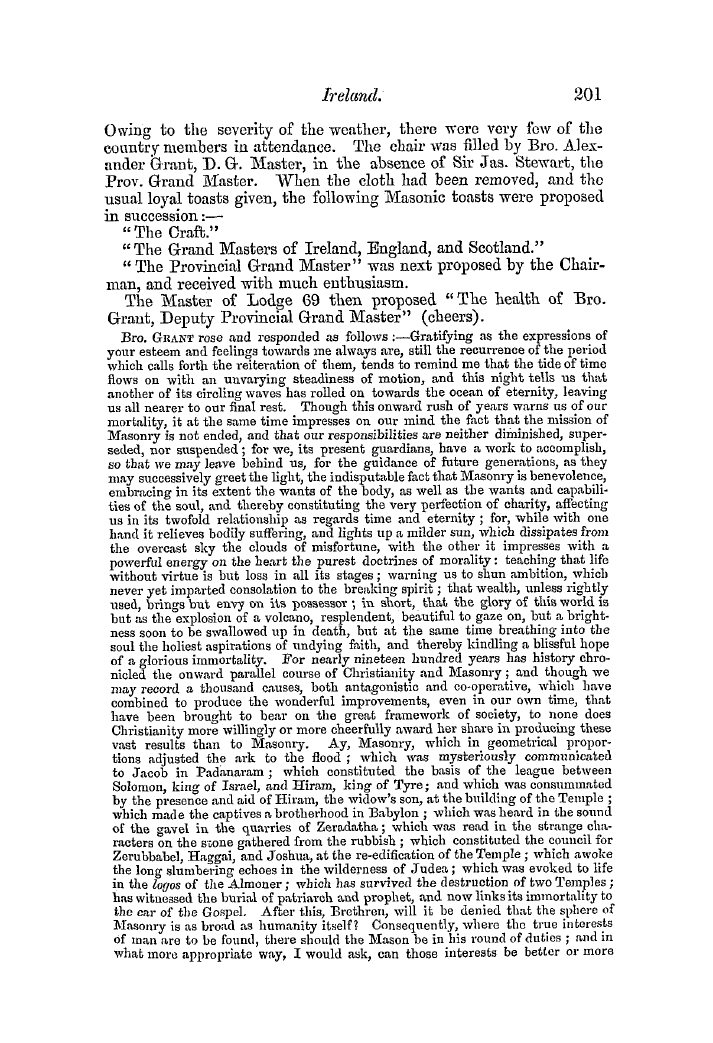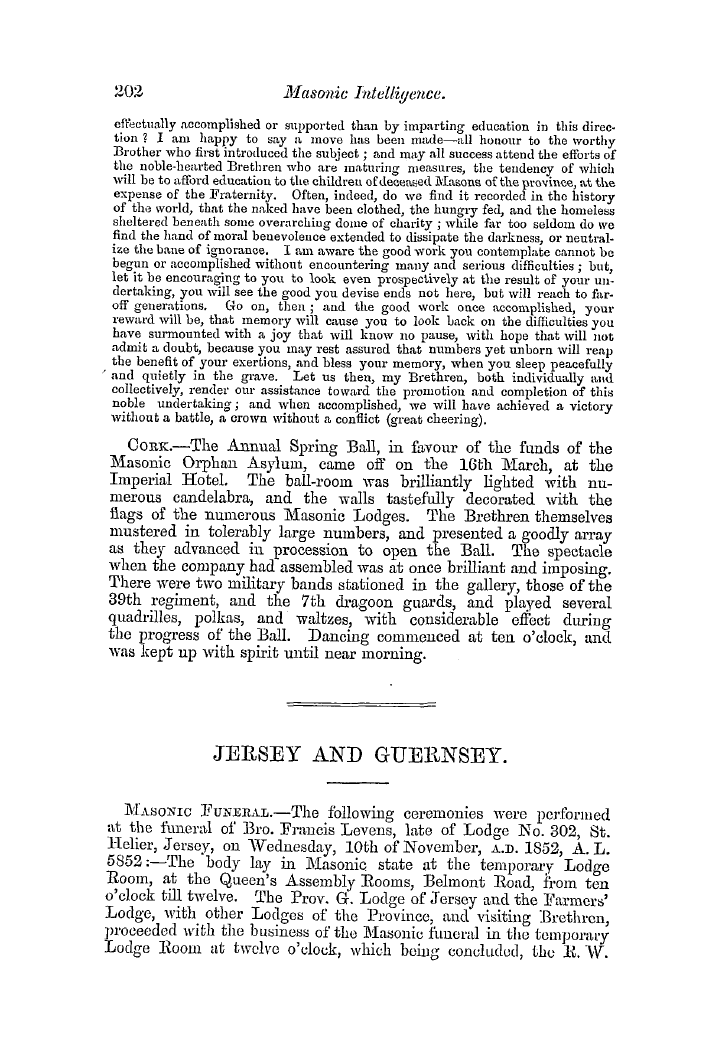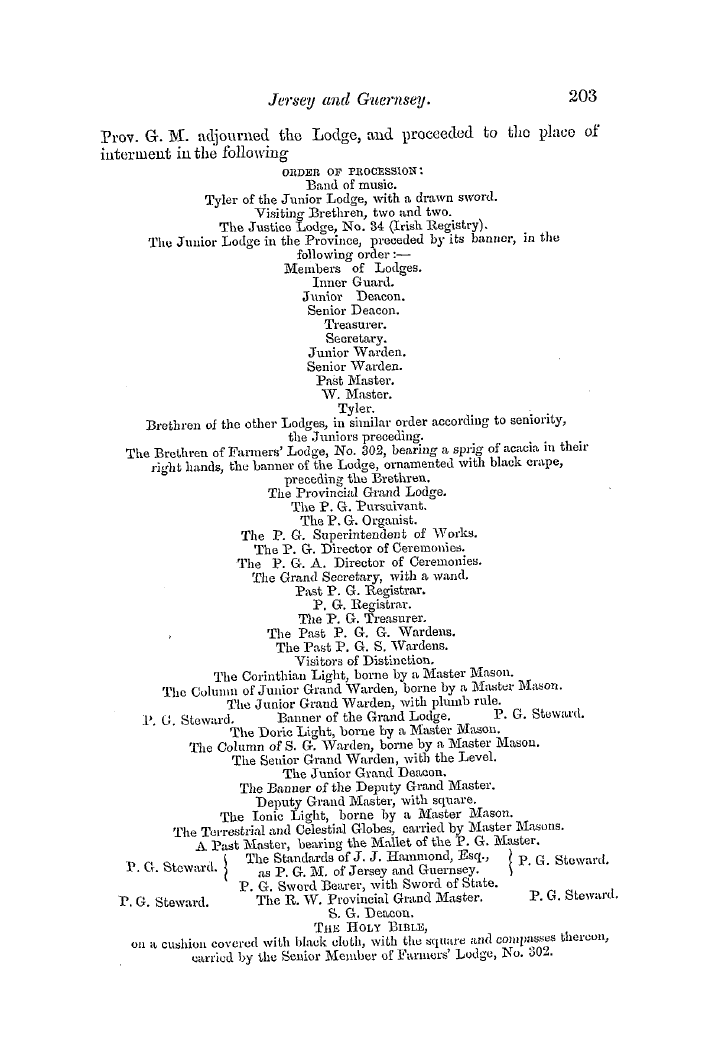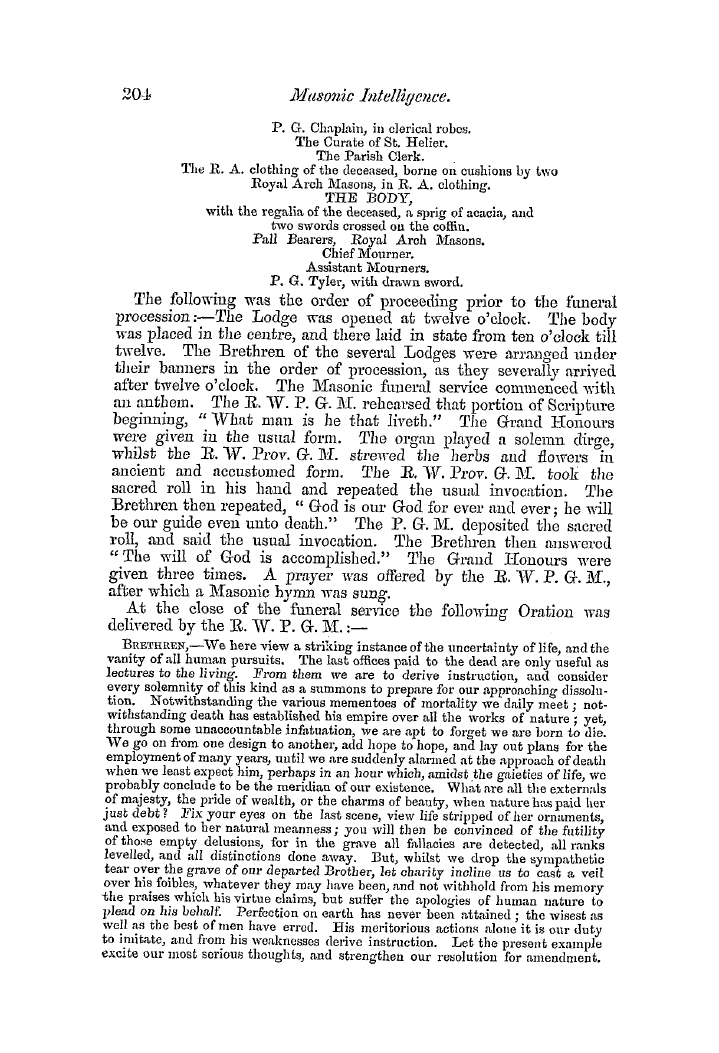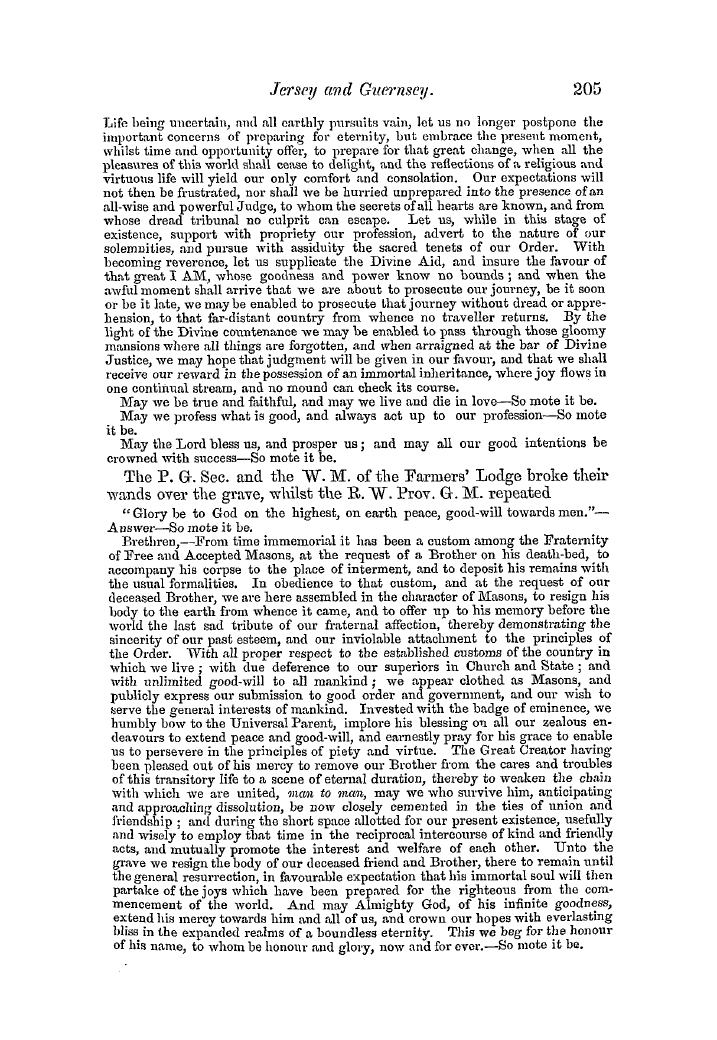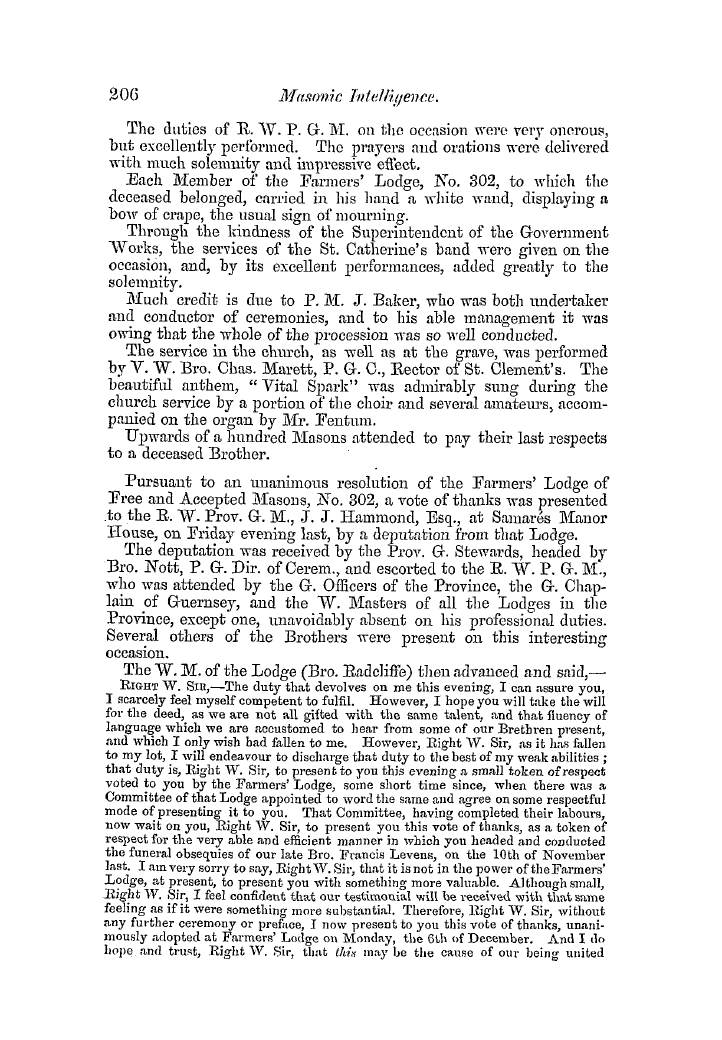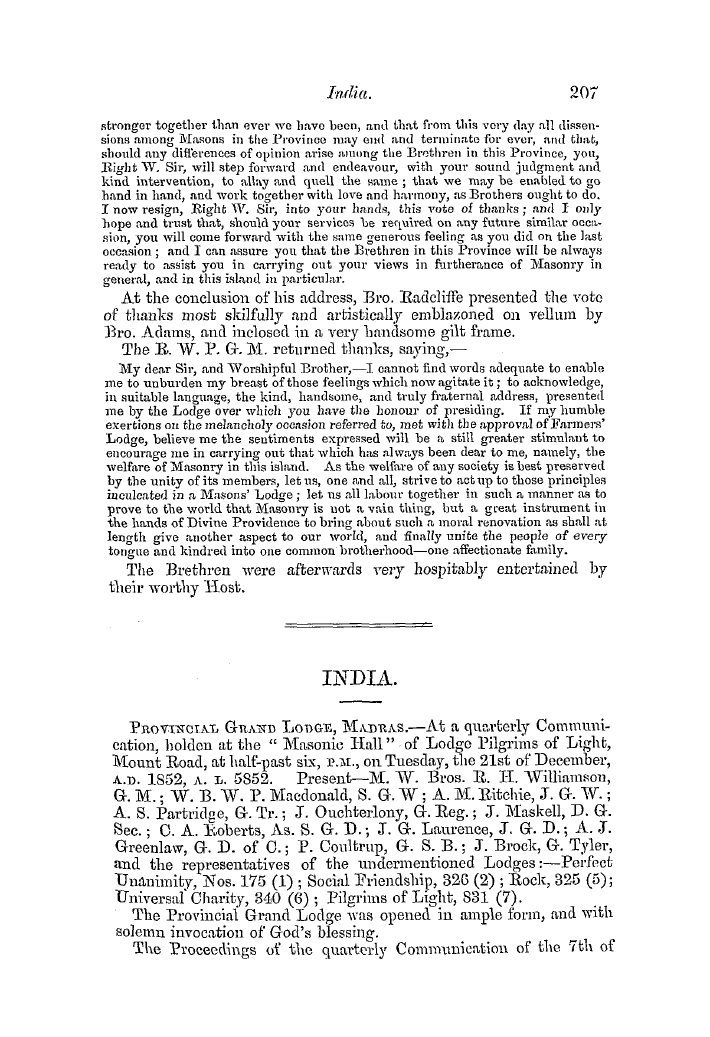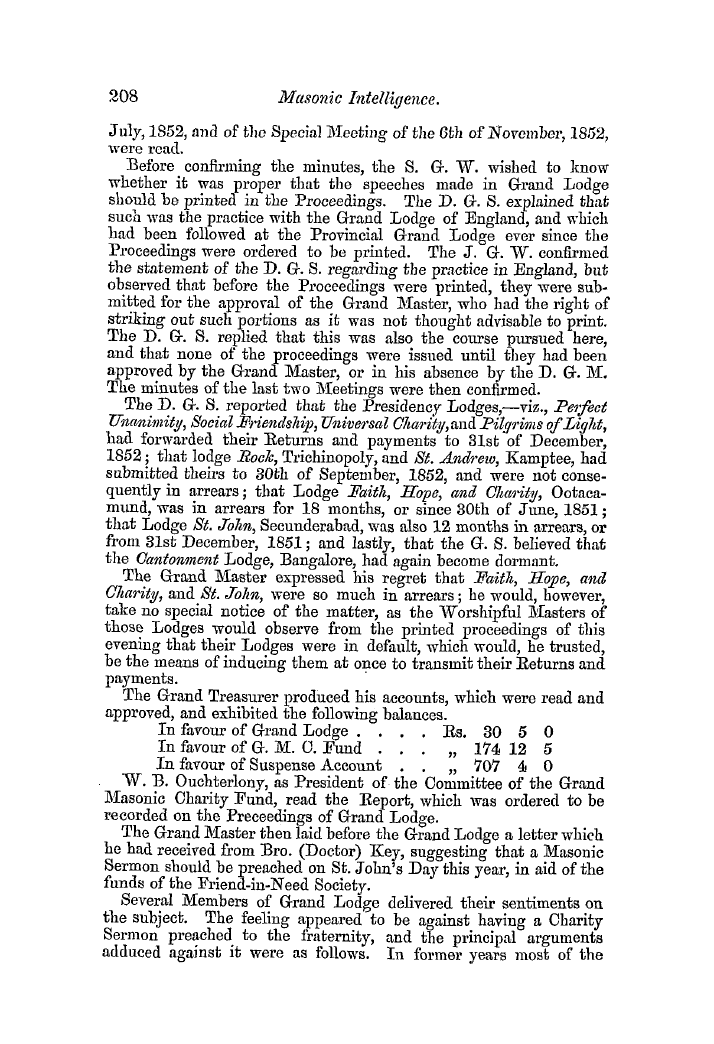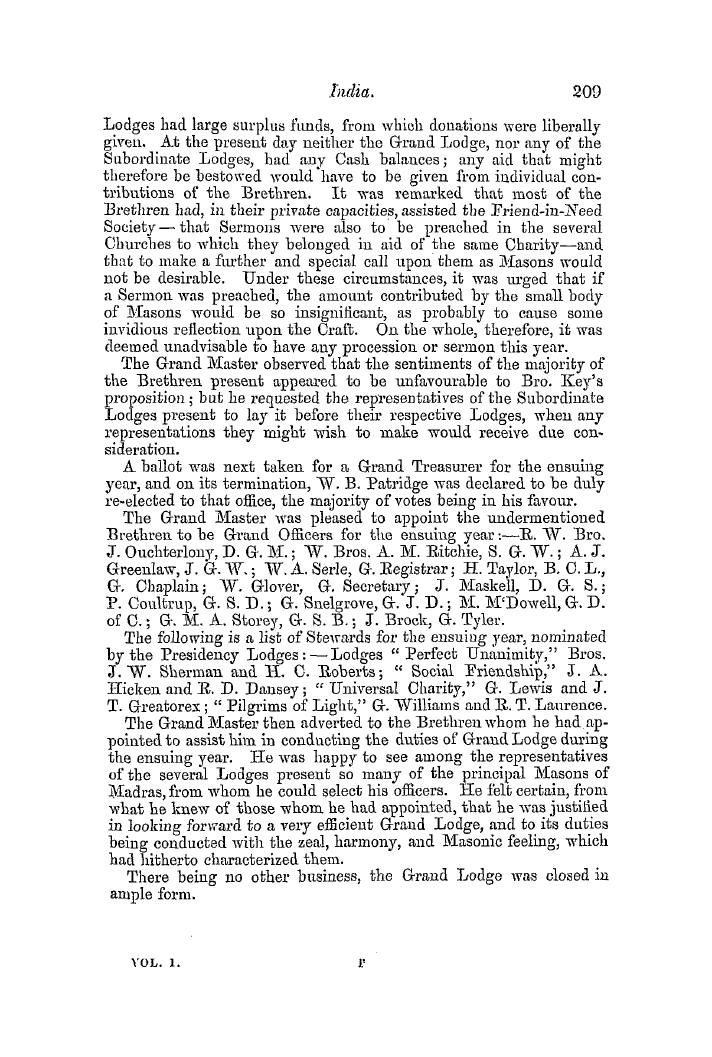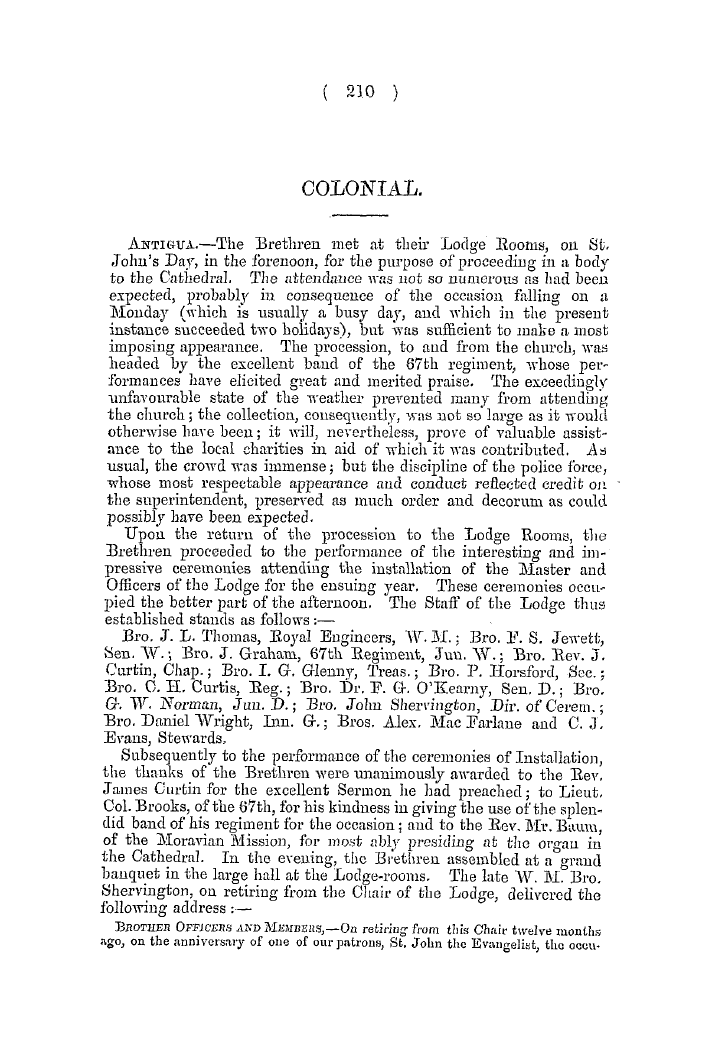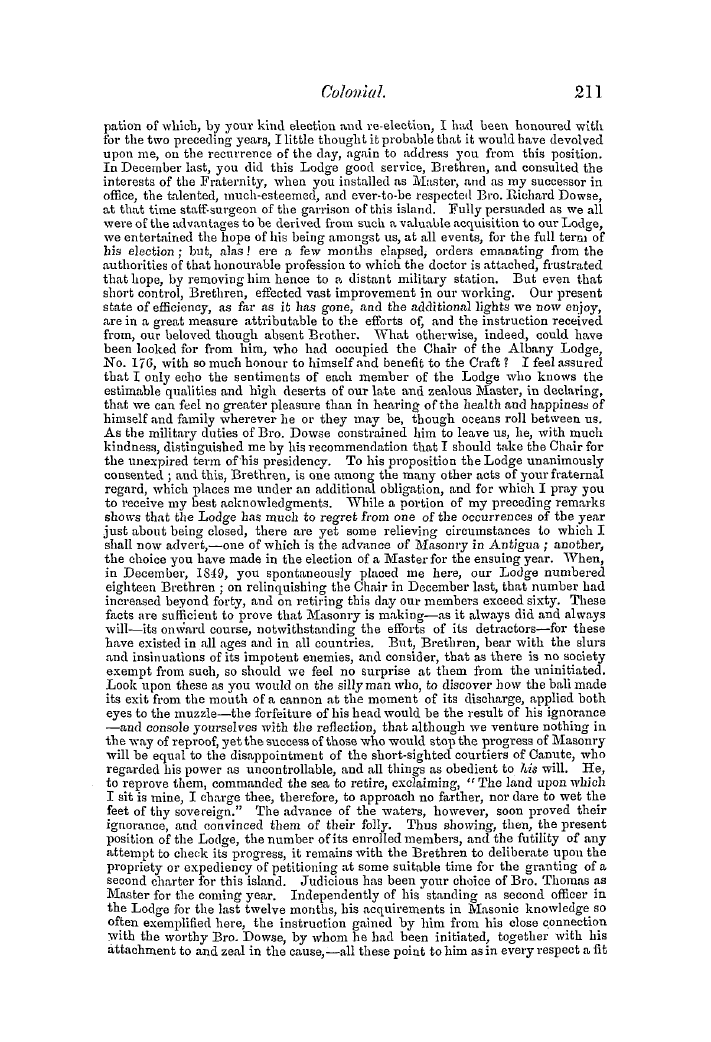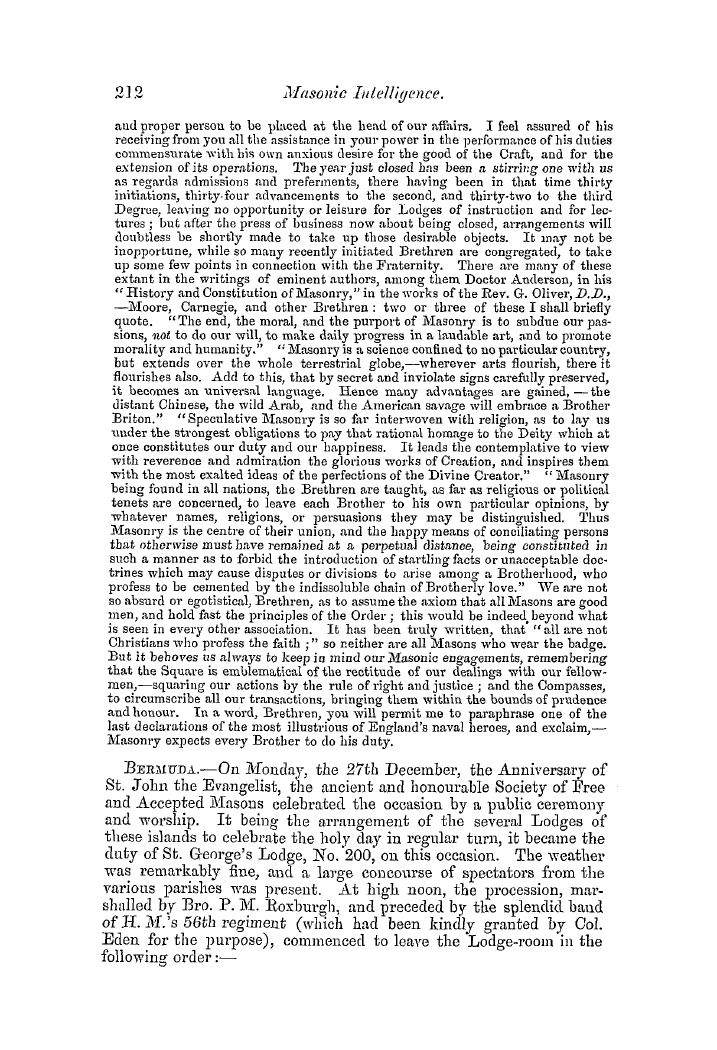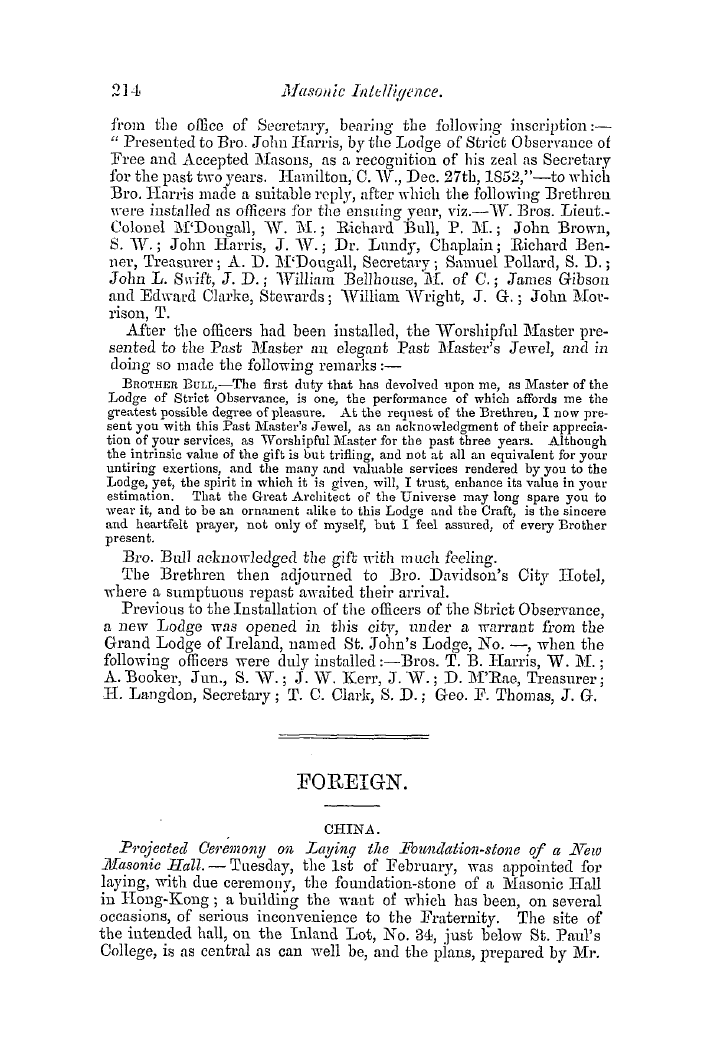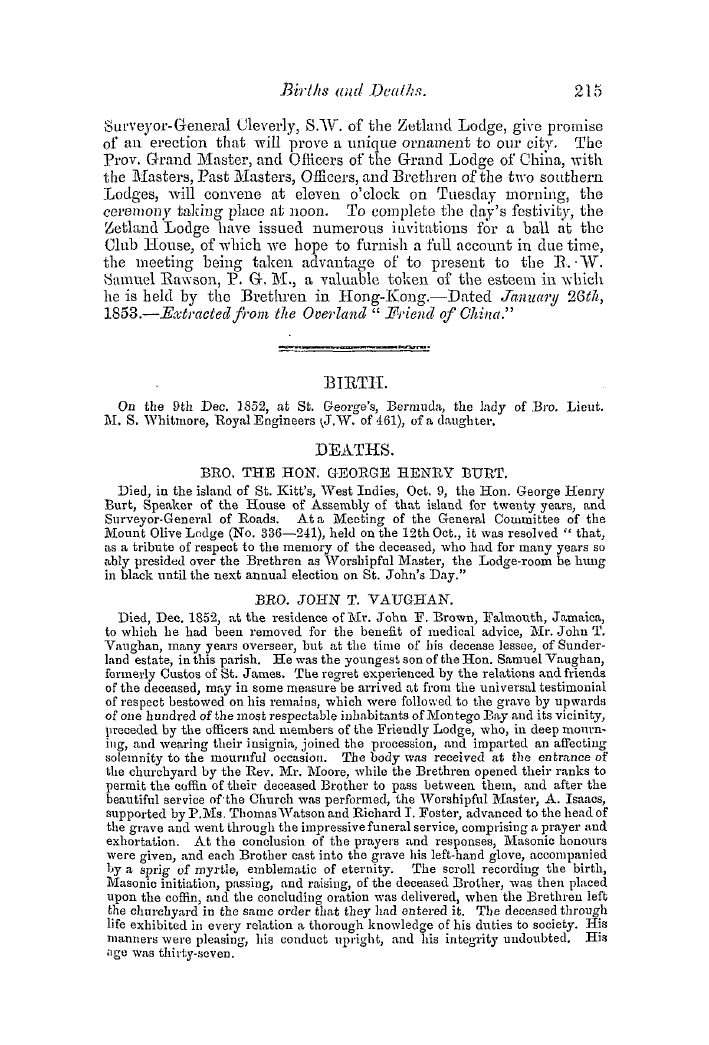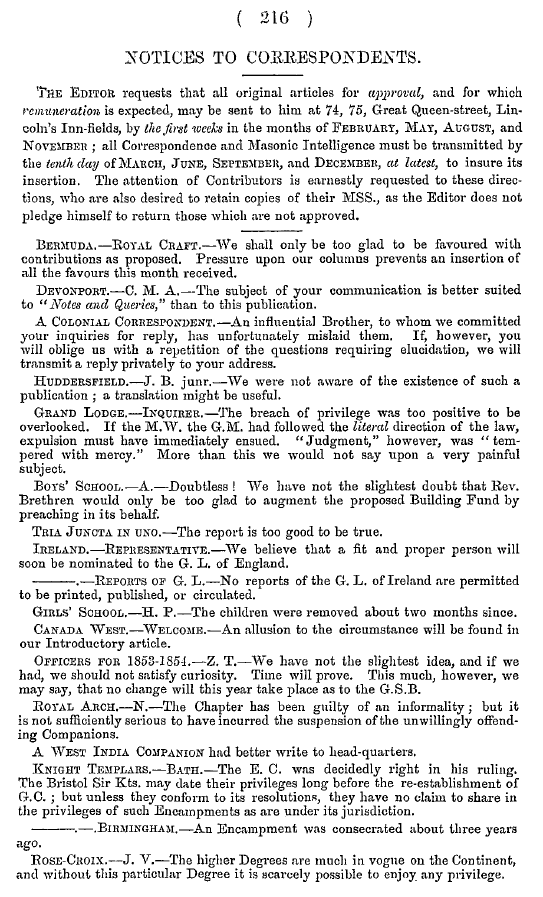-
Articles/Ads
Article THE " GOLDEN ASS" OF APULEIUS. ← Page 6 of 9 →
Note: This text has been automatically extracted via Optical Character Recognition (OCR) software.
The " Golden Ass" Of Apuleius.
change of his dispositions , and entire conquest of his passions , tlie author finely represents all nature as putting on a IICAV face of cheerfulness and gaiety . And to enjoy nature in these her best conditions Avas the boasted privilege of the initiated . " * A splendid description of the procession folloAvs ; Lucius bites the roses , and is instantly restored to his human form .
The priest congratulates him on the happy re-transformation , ancl exhorts him , henceforth , to devote himself to the service of the goddess ; declaring that he AVIIO hacl oA'ercome the danger of robbers , wild beasts , slavery , ancl the most Avearisome journeys , was noAV beyond the reach of adverse fortune . "Thou art now received , " he says , " into the protection of Fortune ,
but of fortune ivith her eyes open ,-f of that fortune Avhich , by the splendour of her own light , illumines the other gods likeAvise . Assume , therefore , a joyous countenance befitting thy white garment , and , in triumphing step , accompany the procession of the goddess Avho hath Avrought thy salvation . Let the uninitiated ^ behold this ; let them behold this , and confess their error . Behold ! freed from his former griefs , and
rejoicing in the proxidence of the mighty Isis , Lucius triumphs over his fortune . But , to the end that thou mayest be safer , and better protected , enroll thy name in this holy ivarfare , unto Avhich thou Avast bespoken not long since ;§ dedicate thyself to the duties of our religion , and undergo the voluntary yoke of our serx'ice . For xvhen once thou hast begun to serve the goddess ,
thou Avilt then the more readily perceive the fruits of thy liberty . " " Here , " continues Warburton , " the moral of the fable is delivered in plain terms . It is expressly declared that vice ancl inordinate curiosity were the cause of Lucius' disasters ; from Avhich the only relief was , initiation into the mysteries .
Whereby the author would insinuate , that nothing Avas more abhorrent from the holy rites than debauchery and magic ; the txvo enormities they Avere then commonly suspected to encourage . " By Lucius' return to his proper form is meant his initiation ; and accordingly , that return is called ( as initiation was ) the being born again . " In fact , the idea of a new birth into a greater state of moral purity and intellectual devotion , is a leading feature in the mysteries of all nations ; ancl a figurative
Note: This text has been automatically extracted via Optical Character Recognition (OCR) software.
The " Golden Ass" Of Apuleius.
change of his dispositions , and entire conquest of his passions , tlie author finely represents all nature as putting on a IICAV face of cheerfulness and gaiety . And to enjoy nature in these her best conditions Avas the boasted privilege of the initiated . " * A splendid description of the procession folloAvs ; Lucius bites the roses , and is instantly restored to his human form .
The priest congratulates him on the happy re-transformation , ancl exhorts him , henceforth , to devote himself to the service of the goddess ; declaring that he AVIIO hacl oA'ercome the danger of robbers , wild beasts , slavery , ancl the most Avearisome journeys , was noAV beyond the reach of adverse fortune . "Thou art now received , " he says , " into the protection of Fortune ,
but of fortune ivith her eyes open ,-f of that fortune Avhich , by the splendour of her own light , illumines the other gods likeAvise . Assume , therefore , a joyous countenance befitting thy white garment , and , in triumphing step , accompany the procession of the goddess Avho hath Avrought thy salvation . Let the uninitiated ^ behold this ; let them behold this , and confess their error . Behold ! freed from his former griefs , and
rejoicing in the proxidence of the mighty Isis , Lucius triumphs over his fortune . But , to the end that thou mayest be safer , and better protected , enroll thy name in this holy ivarfare , unto Avhich thou Avast bespoken not long since ;§ dedicate thyself to the duties of our religion , and undergo the voluntary yoke of our serx'ice . For xvhen once thou hast begun to serve the goddess ,
thou Avilt then the more readily perceive the fruits of thy liberty . " " Here , " continues Warburton , " the moral of the fable is delivered in plain terms . It is expressly declared that vice ancl inordinate curiosity were the cause of Lucius' disasters ; from Avhich the only relief was , initiation into the mysteries .
Whereby the author would insinuate , that nothing Avas more abhorrent from the holy rites than debauchery and magic ; the txvo enormities they Avere then commonly suspected to encourage . " By Lucius' return to his proper form is meant his initiation ; and accordingly , that return is called ( as initiation was ) the being born again . " In fact , the idea of a new birth into a greater state of moral purity and intellectual devotion , is a leading feature in the mysteries of all nations ; ancl a figurative































































































































































































